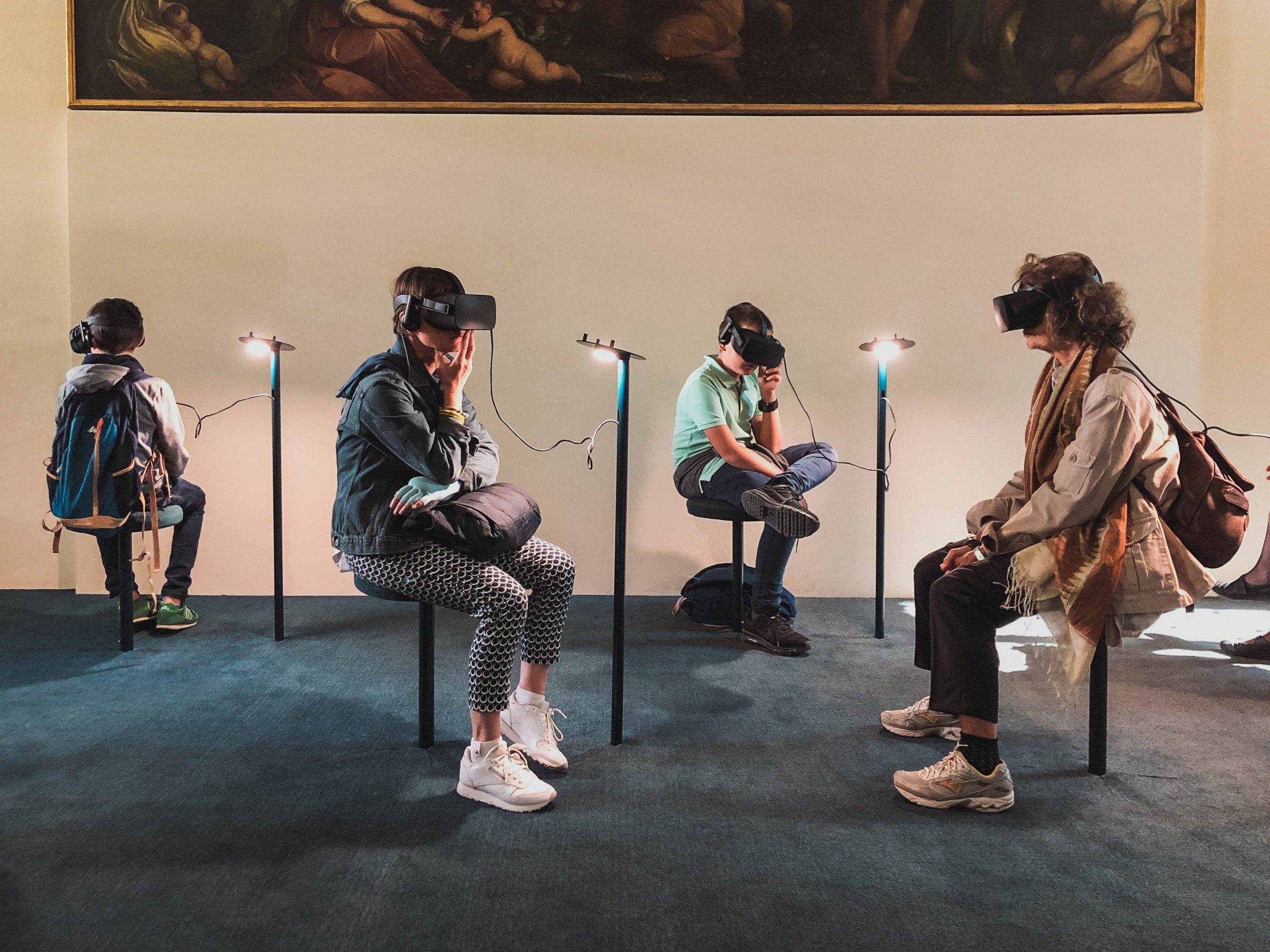

Augmented Reality Babies?
Now, in the age of the Metaverse, something else is here … and it is even creepier. “Augmented reality babies” offer users the virtual experience of “parenting” an algorithm designed to behave like a real baby.
07/20/22
John Stonestreet Kasey Leander

Nineties kids (and their parents) may remember the Tamagotchi craze, a tiny egg-shaped video game that dominated toy markets for a time. Kids would raise a virtual pet that could hang from their backpack like a keychain. I’ve been told it was a great toy—the trauma of forgetting it somewhere and then finding it had passed on to greener digital pastures notwithstanding.
Now, in the age of the Metaverse, something else is here … and it is even creepier. “Augmented reality babies” offer users the virtual experience of “parenting” an algorithm designed to behave like a real baby. Using virtual-reality goggles, or even potentially wearable gloves which can simulate physical touch, users can interact with a digital baby as it grows … or, optionally (and even more creepily), as it stays exactly the same.
Some gurus are heralding AR babies as a new age of parenting. “Make no mistake that this development, should it indeed take place, is a technological game-changer which… could help us solve some of today’s most pressing issues, including overpopulation,” says Catriona Campbell, a former technology advisor to the British government, and author of the book AI by Design: A Plan for Living with Artificial Intelligence.
Some argue this new development could also ease loneliness for those who want children but are unable to have them, or for those who feel they can’t afford to have children. While the average kid costs about $230,000 by the time they reach age 17, reports the New York Post, “a digital kid … could have all its needs met for less than $25 per month.” And as a bonus, no changing diapers!
In light of these possibilities, Campbell offered a somewhat unsettling prediction: “I think it would be reasonable to expect as many as 20% of people choosing to have an AR baby over a real one.”
On one hand, it’s hard not to be cynical of Campbell’s bright-eyed tech optimism, especially given the current dubious state of Mark Zuckerberg’s Metaverse. No matter how good it gets, augmented reality simply cannot replace many of life’s best experiences. Playing a video game in the Metaverse, for example, is fun. Eating a slice of cake… not so much.
By misunderstanding why people become parents in the first place, many proponents of augmented reality misunderstand the essentials of what it means to be human. Logging off from an AR “baby” might be easier, but all the labor spent on an actual child is something that simply cannot be simulated or replaced by a simulation.
And of course, the entire idea of global overpopulation continues to fall apart as its predictions continue to prove false. Should it actually work, this technology will almost certainly be adopted in countries where the most acute problem is underpopulation, not to mention increasingly devastating rates of loneliness. It’s a common trend in the modern world—much like prescribing marijuana to combat anxiety—that our “cures” only further aggravate the problem.
Spending over seven hours every day staring at screens for work, leisure, and connection has led many people to think technology can replace real relationships. But the opposite is true. Technology can do wonders, but putting a virtual baby in the hands of a lonely person is akin to giving a glass of salt water to someone dying of dehydration.
Likewise, it is simply not true that a life free of responsibility is the one which will produce the most happiness. As any parent knows, real kids are noisy, expensive, and inconvenient. There are days when they seem to constantly take our reserves of energy, and sometimes the last strands of patience. But, they’re worth it.
Jesus’ words that “it is more blessed to give than to receive,” aren’t just a pious aphorism. They’re describing a core piece of what it means to be human. The surprising source of real life, joy, and vitality is from serving others, not just ourselves.
No matter how sophisticated they may someday be, virtual babies will always be just a piece of code, a vain attempt to meet the felt needs of lonely adults while never providing for their true needs. If that’s what people want, it would be best to avoid any pretense of “parenting” and buy them a Tamagotchi instead.
Have a Follow-up Question?
Up
Next

Related Content

© Copyright 2020, All Rights Reserved.













